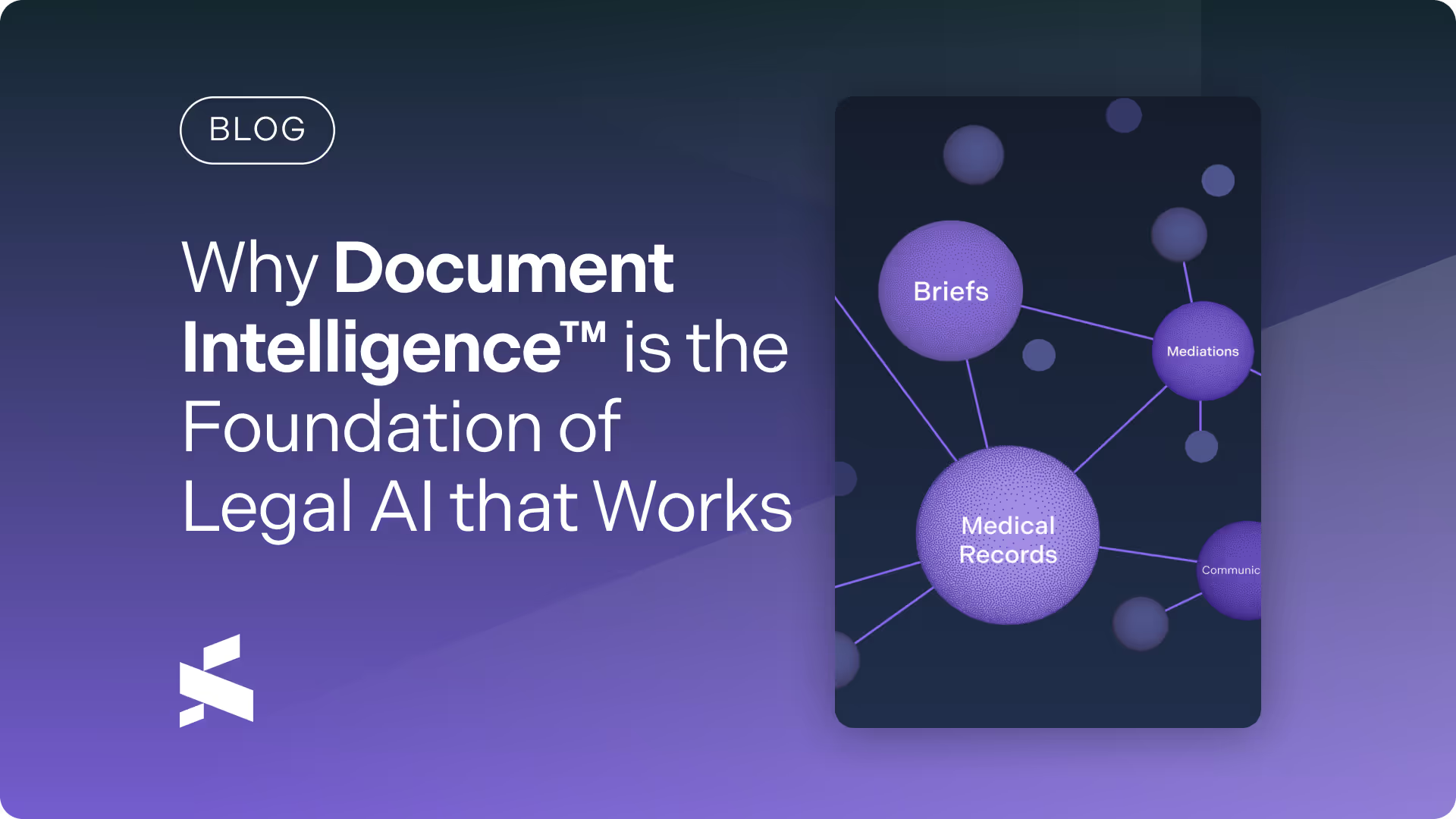Click to listen to a NotebookLM audio overview of this article:
TL;DR:
A PI attorney wakes up at 3:45 a.m. under pressure – two high-stakes cases, a tight personal schedule, and not enough hours in the week. Because he uses Supio, he went back to sleep, knowing he could move fast in the morning. By 9 a.m., one case was done. By lunch, the second.
At some point in their career, every attorney learns the same lesson: confidence is not a constant. It doesn’t come from winning a trial or mastering the rules of evidence. It comes (and goes) based on whether you feel certain that you’ve seen everything.
Every lawyer knows the moment. You’re supposed to be asleep, but your brain’s still scrolling through medical records, deposition notes, causation chains.
One of our clients put it this way:
“I woke up around 3:45 a.m. and thought: there's just not enough time in the week to get this all done, plus I’ve got to pick up my daughter from camp. But then I realized, this’ll be quick with Supio. I went back to sleep. By 9 a.m., I had one case ready. The second took an hour after lunch.”
That’s what the confidence gap looks like in real life. It’s not doubt in your ability, it’s doubt in your bandwidth. A creeping sense that no matter how good you are, the work might still outpace you. And that if you miss something, it won’t be because you were sloppy. It’ll be because you were outnumbered.
- When you're writing a demand letter, do you have confidence to ask for a big number – and know why you're asking for it?
- Do you have confidence to reject the settlement offer and go to trial?
- Do you have confidence in every decision you make along the way?
Supio (and well-grounded legal AI software in general) isn’t there to just make you faster. It’s there to make you more sure and surface what matters before the panic sets in.
“What if I missed something?”
You’re not questioning your diligence. You’re questioning the human limits of memory, context, attention. You’re wondering whether a small detail – a date, a gap in treatment, a mention of a specialist buried on page 287 – might be sitting somewhere just outside your frame of view.
This is the confidence gap.
Modern litigation asks human minds to process thousands of pages of dense, technical, often redundant documentation and then draw the right insights at the right time. There is no margin for uncertainty, and yet there is no obvious path to certainty either.
Most litigation teams already work hard to stay organized. Records are reviewed, notes are taken, questions are raised and resolved. But even the best systems rely on human memory and manual review. And that’s the problem.
- An op note is buried
- A radiology report gets filed late
- A missed appointment turns out to be the linchpin of causation
This is not because anyone was careless, but because no one flagged it in time.
AI won’t erase that doubt. But it might let you answer it.
Let’s be clear about what it doesn’t do.
It doesn’t replace your judgment. It doesn’t hand you a strategy. It doesn’t promise omniscience.
But when it's built right – when it understands the structure of medical records, the texture of legal reasoning, the specific pressures of litigation prep – it can serve a different, subtler purpose: helping you double-check your own work without starting from scratch.
Supio’s Case Signals was designed to help you get from “Did I miss anything?” to “I’ve checked and fully verified.”
You don’t have to ask your associate to pull every reference to “left knee pain” before the second surgery.
You just “Supio” it:
- “Who can speak to causation?”
- “Where are the treatment gaps?”
- “Are any critical records still missing?”
- “What changed between Month 2 and Month 8?”
And you get direct, traceable responses pulled from your own files.
The goal isn’t “speed” alone. It’s confidence.
Volume alone doesn’t deliver clarity. What you need (what every attorney needs when the stakes are high) is a way to close the loop on your own process. Not to blindly trust the machine, but to trust that you’ve looked and verified thoroughly.
To be super confident, you need to understand everything about your case. And to do that, you need the power of AI.
What we’re really building is litigation readiness.
The difference between a $700K settlement and a $3M verdict often comes down to one question:
“Did I find the thing that matters most soon enough to act on it?”
Supio is helping firms answer that question earlier – and more often.
If you're curious how firms are using Supio to reduce risk, accelerate insight, and reclaim confidence in their litigation workflows, you can explore more here:
→ See how Supio supports litigation teams
Because when one missed fact can undermine your entire case, the most valuable thing you can carry into the courtroom isn’t a binder. It’s certainty.
FAQ
Q: How do you define “litigation readiness”?
A: Litigation readiness means more than having records in a folder or a strategy on paper. It means having confidence early in the process that you’ve surfaced the details that matter. It’s the ability to spot causation threads, red flags, and missing records long before trial prep. Supio helps teams shift from reactive case reviews to proactive case building so you’re never making million-dollar decisions in the dark.
Q: How do attorneys stay in complete control when using AI tools like Supio?
A: Supio doesn’t replace legal reasoning. It actually reinforces it. Attorneys stay in full command: the tool never generates arguments or takes action on its own. Instead, Supio surfaces verifiable insights, directly linked to source documents, that help you validate your own instincts.
Q: Is Supio a replacement for legal judgment?
A: Not even close. Supio is built for the moment when judgment begins. That moment usually starts with a feeling: “Did I miss something?” Supio doesn’t answer for you. It helps you ask better questions, process more data, and reach conclusions faster with audit-ready, source-linked confidence.
Q: What exactly is Case Signals, and how does it work?
A: Case Signals is Supio’s system that continuously scans your case file in the background to flag overlooked injuries, documentation gaps, causation threads, and valuation risks. Each finding appears in-line within your case timeline, fully source-cited.
Q: Why does certainty matter more than speed in litigation?
A: A fast process that misses a causation detail can cost millions. Certainty means knowing that nothing got skipped, buried, or misfiled. Supio promises to make every hour you spend on a case count for more.

.webp)








